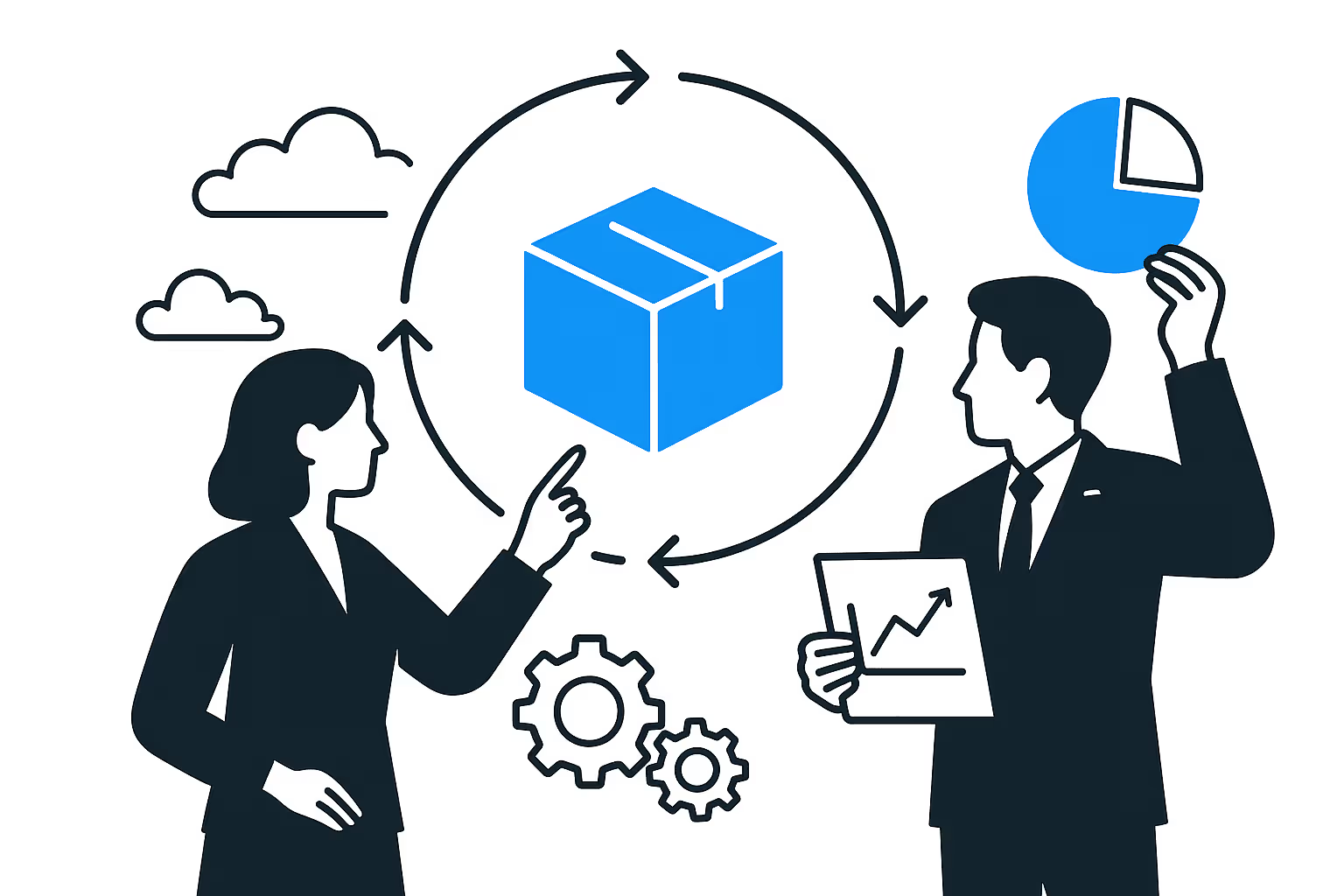The advantages of B2B portals:
- Simplification of ordering goods or services.
- Document management automation.
- The ability to obtain relevant information in real time.
- Lower order processing costs.
- Increasing customer loyalty by improving service.
The use of B2B portals in various industries
1. Industry and production
In manufacturing industries, B2B portals are actively used to optimize the supply chain. Such platforms allow manufacturers to interact with distributors as well as end customers.
Example: a company that produces construction materials creates a portal where distributors can view current product stocks, place orders and receive delivery information. This minimizes the need for telephone conversations and reduces the risk of errors.
2. Trade and distribution
In the distribution industry, B2B portals are used to automate sales and improve supply control. For example, wholesale trading platforms allow customers to view the full product catalog, their availability, prices and place orders online.
Example: A home appliance distributor gives partners access to a portal where they can not only place orders, but also receive analytical data about their purchases, plan purchases and view transaction history.
3. logistic
For logistics companies, B2B portals have become a key tool for coordinating deliveries and monitoring goods. They make it possible to automate the process of generating transportation requests, track cargo in real time and provide access to the necessary documents.
Example: a logistics operator creates a platform through which customers can track the path of goods, request additional services and receive reports on the status of transportation.
4. Finance and insurance
B2B portals are widely used in the financial sector to work with corporate clients. Such platforms provide companies with access to financial instruments, insurance services, and analytics.
Example: an insurance company is implementing a portal where corporate clients can issue policies, track their status, apply for settlement of losses and receive up-to-date information about insurance programs.
5. IT and telecom
In the IT industry, B2B portals are used to provide technical support, manage licenses, and automate customer service.
Example: A software developer is creating a platform where enterprise customers can manage product subscriptions, request technical assistance, get updates, and access training materials.
Real implementation cases
Sales automation in the construction industry
A building materials manufacturer has launched a B2B portal that has reduced the time spent placing orders and improving the accuracy of order fulfillment. Partners were able to see product availability in real time, place orders and track their fulfillment.
Improving customer service in logistics
The logistics company has implemented a cargo management platform. Customers got access to information about the location of their shipments, automated shipping costs, and order fulfillment status. This has allowed the company to reduce support requests and improve customer satisfaction.
Optimizing the work of distributors
A wholesale supplier of consumer goods has implemented a B2B portal where customers can view promotions, create orders, and receive individual commercial offers. As a result, the company increased sales by promptly informing partners about new offers.
How to choose a B2B portal for business?
The choice of a suitable solution depends on the specifics of the industry and the company's objectives. When developing and implementing a B2B portal, it is important to consider the following aspects:
- Functionality: the platform should solve specific business problems.
- Integration: the ability to connect to the company's existing ERP, CRM or other systems.
- Ease of use: An intuitive interface will increase user loyalty.
- Flexibility and scalability: the portal should develop together with business.
- Safety: data protection is one of the key factors for successful work.
B2B portals have become an indispensable tool for companies operating in various industries. They simplify interaction with partners, automate processes and help develop business. Use cases show that the proper implementation of the portal can not only improve work efficiency, but also increase the company's revenue.








